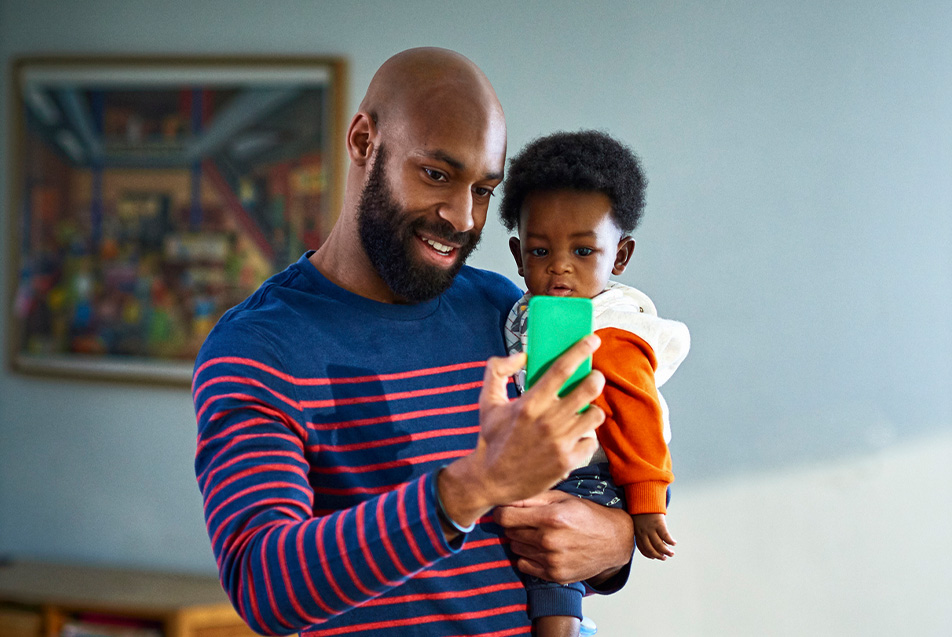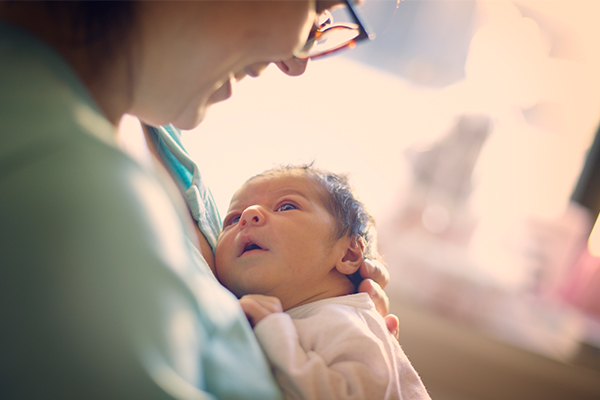
As a parent, you want to protect your child and keep them healthy, but not all decisions are clear or easily made. Raising children during a global pandemic, for example, can present a slew of challenges, including how to navigate tricky social situations. To provide some guidance and insight on the subject, we asked Jose Rafael Nunez Alvarado, MD, PPG – Pediatrics, to share his tips for keeping babies and children safe amid COVID-19 this holiday season.
The risks of social gatherings
There is always a risk of acquiring or transmitting the virus during a social gathering, no matter how big or small. People attending the event could potentially be asymptomatic carriers of the SARS-CoV2 virus and unknowingly transmit COVID-19 to healthy children and babies.
During holiday gatherings, it’s important to remember that many people may not follow the recommended precautions, such as proper social distancing, wearing a face covering, washing hands or cleaning surfaces. Children are also likely to come in contact with high-touch surfaces, put things in their mouths, or hug and kiss family and friends while at seasonal social events.
For these reasons, it’s essential to think through your commitments this holiday season and modify plans to help reduce the spread of COVID-19. The top priority is keeping your little ones, loved ones and yourself healthy and safe this year.
Setting boundaries
It’s important to discuss your concerns about COVID-19 with your family and friends, especially if you care for an infant, young child or older adult with a health condition. Also, to limit the risk of exposure, it’s important to limit or avoid visits and social events as much as possible. If you allow a friend or relative to stop by, be sure to establish rules for your home, including social distancing practices, frequent handwashing and face coverings. The most important boundary to set is prohibiting anyone who is not feeling well, has been exposed to the virus in the last 14 days or has tested positive for COVID-19 from entering your home.
Protecting your little ones
There are several ways to protect infants and children during the holidays while navigating the current pandemic including:
- Avoid social gatherings as much as possible.
- Try holding family get-togethers virtually this year.
- Ask family and friends if they or their children are experiencing COVID-19 symptoms or have been exposed to someone infected 14 days before the event.
- Avoid direct contact with individuals outside your household (handshakes, hugs, kisses, allowing them to carry your infant or child).
- If you must attend a family or social gathering, choose a well-ventilated or outdoor event and be sure to social distance while following other precautionary measures.
- Never leave home without masks, soap or hand sanitizers for the entire family.
- If your child isn’t old enough to wear a mask (2 or younger), express your concerns with friends and family and ask them to keep a safe distance.
- Help your children wash/clean their hands frequently after touching surfaces and shared toys.
- Bring your own food to gatherings or be sure the least number of people possible handles the utensils and food being served.
- Shop for gifts online this year and have them delivered, or choose curbside pickup.
- If you must travel, consider driving to your destination and packing food and water for the trip.
- If you must fly, use standard precautions and avoid crowded areas like security or boarding zones. Also, inform the flight crew that you are traveling with infants or young children so you can board the plane first. Once on the plane, continue standard COVID-19 precautions.

Children infected with COVID-19
If your child contracts the virus, clinical presentations can vary. The majority of children are asymptomatic or present with mild symptoms. Infants under one year of age or children who are asthmatic, have lung diseases, are immunosuppressed or have other chronic illnesses could present with severe symptoms requiring hospitalization. The most common symptoms in children are usually:
- Fever
- Difficulty breathing
- Fatigue
- Poor appetite
- Cough
- Headache
- Body aches
- Sore throat
- Chills
- Loss of the sense of taste or smell
- Abdominal pain
- Nausea
- Vomiting
It’s also important to remember that asymptomatic children can transmit the virus to other healthy or high-risk individuals at home, daycare or school.
Actions caregivers can take
If your child is presenting with symptoms or concerning behavior, please keep them home and contact your pediatrician as soon as possible for further instructions. You may also need to contact your child’s school and daycare to inform them that he/she has presented with symptoms of COVID-19. Notifying them will help the school advise parents of other children and staff members involved in your child's care.
Also, please do not avoid calling your doctor. In most cases, your pediatrician will give you instructions to stay home or go to the emergency department for evaluation and testing, along with any measures you should take to minimize exposure to others. Your pediatrician will also provide you with information about managing the symptoms while at home and any red flags to watch for. The most important things to be on the lookout for include:
- A very high fever
- Intolerance of food or liquids
- Signs of dehydration (not making enough urine or wet diapers)
- Persistent vomiting
- Lethargy or lack of energy
- Irritability and inconsolableness
- Difficulty breathing
- Signs or symptoms that are unusual for your child or are concerning to you
If any of the above-mentioned red flags are present, please go to the hospital immediately for evaluation.
Additional thoughts
Another important aspect to consider is the psychological effect and stress the pandemic can bring to families. If your child, adolescent or other family member is presenting symptoms such as anxiety, depression, excessive worrying, grief, trouble with school or concentration, please call your doctor and ask for help.



